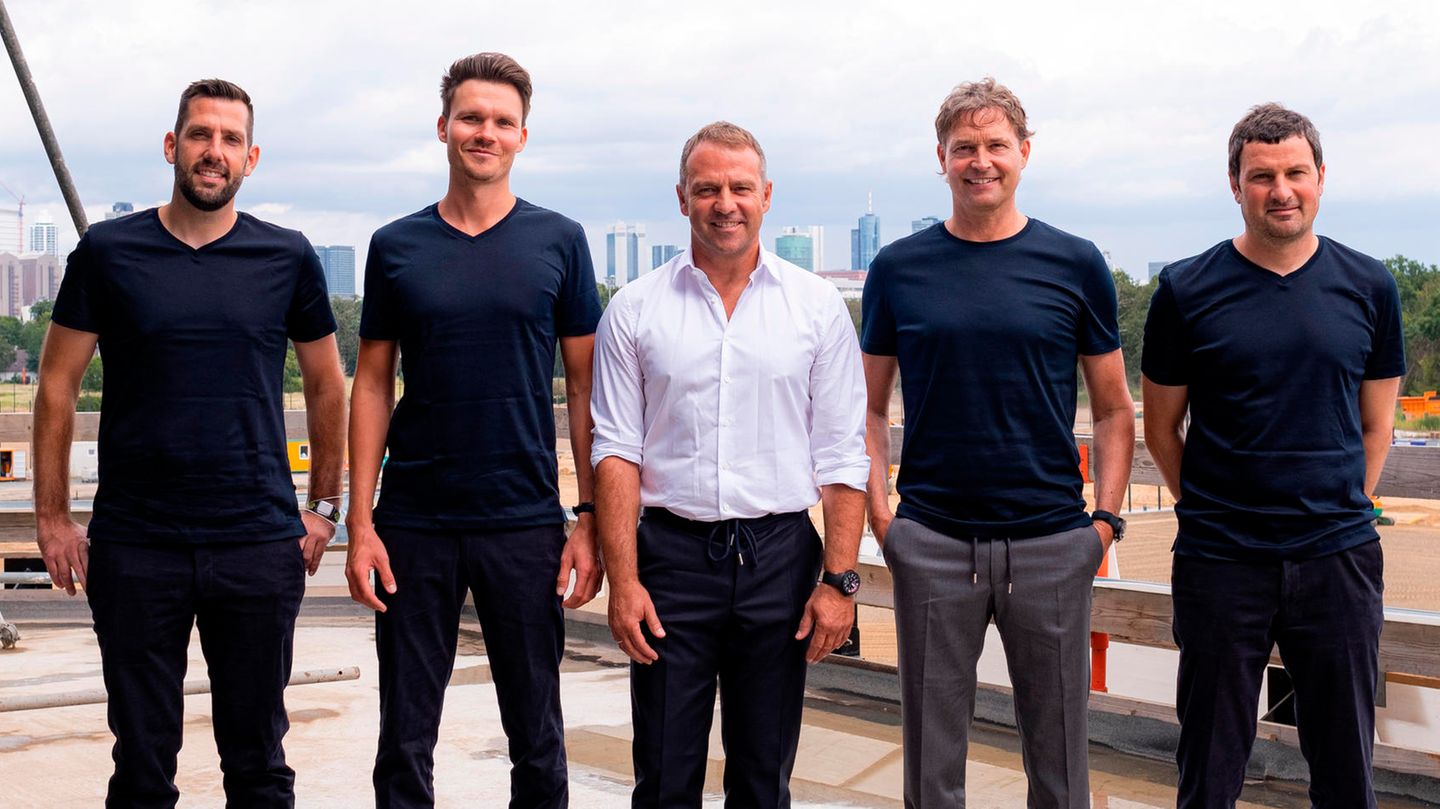With a newly formed team of coaches, the new head coach Hansi Flick wants to lead the German national soccer team back to the top of the world – and relies on the experience of players like Hummels, Müller and Reus. He also mentioned Mario Götze.
By Christian Ewers, Frankfurt
It was a day of harmony, everyone had something nice to say about everyone when Hansi Flick was introduced as the new national coach on Tuesday in Frankfurt. Oliver Bierhoff, manager of the German national soccer team, raved about Flick as “an absolute expert and dream coach”. Peter Peters, interim president of the DFB, even believed that Flick was sending a signal of departure. The association needs “its honor back,” said Peters, referring to the rift between former DFB President Keller and General Secretary Curtius, who have both vacated their posts in the meantime.
Only the savior himself, Hansi Flick, allowed himself a little tip on the day of his public inauguration. When asked what the difference between a job as a club coach and that as a national coach, Flick replied: “As a national coach, you can choose the players yourself. That’s pretty good.”
Swipe at Hasan Salihamidzic
This sentence was a swipe at Hasan Salihamidzic, the sports director of FC Bayern. In the spring, Flick asked for his contract to be terminated because he did not agree with Salihamidzic’s purchasing policy and felt that his right to have a say in transfers was restricted. And indeed: Flick now has a free choice at the DFB. The players he calls up for the national team only need to have a German passport. Flick, who is replacing the recently unsuccessful Joachim Löw, will make a different selection of personnel than his predecessor – that became clear on Tuesday. It was only late and under public pressure that Löw brought center-backs Mats Hummels and Thomas Müller back into the squad for the European Championship. Löw wanted a fresh start after the botched World Cup 2018 and parted ways with the leading players Boateng, Müller and Hummels. At least Müller and Hummels will be allowed to continue their careers in the DFB selection under Flick. “If everyone does what I think they are, they’ll be there.”
The door is also open for Mario Götze, scorer of the final goal in winning the 2014 World Cup. Flick said he had noticed that Götze “got back on track” at PSV Eindhoven. Flick assesses Marco Reus from Dortmund even more positively, who had completely withdrawn from the EM in the summer. In the last third of the last third of the field, i.e. the attack zone, Reus is one of the best players ever. “And the best players have to play for Germany.”
Flick is a pragmatist. He wants short-term success, he doesn’t think in long cycles – unlike Löw, who often excused poor performance by saying that the team was still being built up and needed time.
Next nominations won’t come as a surprise
The Flick era will soon begin with a series of competitive games. At the beginning of September, the national team will play three World Cup qualifying matches; it’s against Liechtenstein, Armenia and Iceland. Personnel surprises are not to be expected with the nomination, but a change in sentiment is likely. “I want us to attack, that we press early and get the ball,” said Flick. He is just an “all in” guy, one who demands of his players that they “throw in everything they have”.
Flick takes on a different tone than Löw, who liked to remind his team very emphatically of the strengths of the opponent – but apparently too rarely of their own performance. At the unsuccessful EM 2021, which ended early for the Germans with a 2-0 draw against England, the national team appeared intimidated. She tortured herself against a team like Hungary, which is only second class internationally.
Flick wants to bring a breath of fresh air and has put together a new team of coaches. Only assistant Marcus Sorg remains from the Löw era; The goalkeeper coach will be Andreas Kronenberg (formerly SC Freiburg) from Switzerland, Danny Röhl and Hermann Gerland from FC Bayern, the standard specialist Mads Buttgereit from Denmark and Benedikt Höwedes, one of the 2014 world champions, was brought in as team manager. Flick wants to go to this golden age connect now. He was there himself when Germany won the World Cup in Rio de Janeiro – as Joachim Löw’s assistant.
I have been working in the news industry for over 6 years, first as a reporter and now as an editor. I have covered politics extensively, and my work has appeared in major newspapers and online news outlets around the world. In addition to my writing, I also contribute regularly to 24 Hours World.




